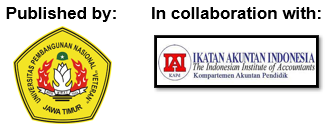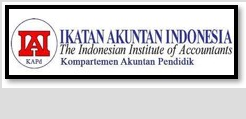Market Reaction on the Announcement of Elected President (The 2019 Presidential Election in Indonesia)
DOI:
https://doi.org/10.33005/jasf.v3i1.77Keywords:
abnormal return, event study, political event, trading liquidityAbstract
Investors tend to respond to political events information because they are considered to be supporting or risking the stability of the capital market, so they must immediately make investment decisions quickly. Unlike the election process in other countries, this five-yearly election in Indonesia is not just a regularity of changing authorities but also carries an ideological gamble. The 2019 election as a necessary test for Indonesia related to the issue of communist phobia: between secular and conservative. Different from previous research on political events that focus on the electoral period, this study aims to prove the information content of the presidential announcement in 2019 by using a window period of eleven days, which is five days before and five days after the announcements. Tests were conducted on 45 companies registered as LQ-45 companies in 2019. Different samples of paired tests were done using a paired t-sample tool by comparing abnormal returns and the level of stock trading activity. By using various tests, this study proves the existence of significant differences in abnormal returns and trading activities in the period before and after the 2019 presidential announcement. So, it was concluded that the 2019 presidential announcement had information content that had an impact on obtaining abnormal returns for investors. This study also proves that investors respond to information and political events as part of their investment decisions. So that daily transaction fluctuations are indicated by a trend of increasing and decreasing selling and buying actions on a spot time.
Downloads
References
Ahmad, W., Khan, N., Usman, A., Ahmad, F., & Khalil, Y. (2017). Stock Market Reaction to Political Event "Sit-In" (Evidence from Pakistan). Journal of Managerial Sciences, XI(1), 23–37. Retrieved from http://www.qurtuba.edu.pk/jms/default_files/JMS/11_1/JMS_January_June2017_23-37.pdf
Ahmed, W. M. A. (2017). The impact of political regime changes on stock prices: the case of Egypt. International Journal of Emerging Markets, 12(3), 508–531. https://doi.org/10.1108/IJoEM-12-2015-0258
Anggraini, T. (2019, April 11). Pengamat: Pemilu 2019 Ujian Terberat Bagi Penyelenggara. Beritasatu.Com, pp. 1–3. Retrieved from https://www.beritasatu.com/politik/548167/ pengamat-pemilu-2019-ujian-terberat-bagi-penyelenggara
Beaulieu, M.-C., Cosset, J.-C., & Essaddam, N. (2006). Political Uncertainty and Stock Market Returns Evidence from the 1995 Quebec Referendum. Canadian Journal of Economics, 39(2), 621–642. https://doi.org/10.1111/j.0008-4085.2006.00363.x
Beaver, W. H. (1968). The Information Content of Annual Earnings Announcements. Journal of Accounting Research, 6, 67. https://doi.org/10.2307/2490070
Bechtel, M. M. (2009). The Political Sources of Systematic Investment Risk: Lessons from a Consensus Democracy. The Journal of Politics, 71(2), 661–677. https://doi.org/10.1017/S0022381609090525
Bittlingmayer, G. (1998). Output, Stock Volatility, and Political Uncertainty in a Natural Experiment: Germany, 1880-1940. The Journal of Finance, 53(6), 2243–2257. https://doi.org/10.1111/0022-1082.00090
Bosch, J.-C., Eckard, E. W., & Singal, V. (1998). The Competitive Impact of Air Crashes: Stock Market Evidence. The Journal of Law and Economics, 41(2), 503–519. https://doi.org/10.1086/467399
Brock, W. A., & Kleidon, A. W. (1992). Periodic Market Closure and Trading Volume. Journal of Economic Dynamics and Control, 16(3–4), 451–489. https://doi.org/10.1016/0165-1889(92)90045-G
Budianta, M. (2019). Pilpres 2019: Politik Identitas, Ujian bagi Demokrasi dan Pluralitas di Indonesia. Matamata Politik: Berita Politik Dunia, pp. 1–3. Retrieved from https://www.matamatapolitik.com/opini-politik-identitas-ujian-bagi-demokrasi-dan-pluralitas-di-indonesia/
Budiman, A. (2015). Analisis Perbandingan Average Abnormal Return dan Average Trading Volume Activity Sebelum dan Sesudah Peristiewa Pemilu 2009 dan 2014. Universitas Negeri Semarang.
Chiu, C.-L., Chen, C.-D., & Tang, W.-W. (2005). Political elections and foreign investor trading in South Korea's financial markets. Applied Economics Letters, 12(11), 673–677. https://doi.org/10.1080/13504850500190097
Dangol, J. (2008). Unanticipated Political Events and Stock Returns An Event Study. NRB Economic Review, 20(2006), 86–110.
Datta, D., & Ganguli, S. K. (2014). Political connection and firm value: an Indian perspective. South Asian Journal of Global Business Research, 3(2), 170–189. https://doi.org/10.1108/sajgbr-03-2013-0020
Diniar, A. H., & Kiryanto, K. (2018). Analisis Dampak Pemilu Presiden Jokowi Terhadap Return Saham (Studi Kasus Saham LQ-45 di Bursa Efek Indonesia). Jurnal Akuntansi Indonesia, 4(2), 97. https://doi.org/10.30659/jai.4.2.97-108
Döpke, J., & Pierdzioch, C. (2006). Politics and the stock market: Evidence from Germany. European Journal of Political Economy, 22(4), 925–943. https://doi.org/10.1016/j.ejpoleco.2005.11.004
Fama, E. F. (1970). Efficient Capital Markets: A Review of Theory and Empirical Work. The Journal of Finance, 25(2), 383. https://doi.org/10.2307/2325486
Foster, G. (1978). Financial Statement Analysis. Englewood Cliffs: Prentice-Hall.
Günay, S. (2016). Is political risk still an issue for the Turkish stock market? Borsa Istanbul Review. https://doi.org/10.1016/j.bir.2016.01.003
Imelda, I., Siregar, H., & Anggraeni, L. (2015). Abnormal Returns and Trading Volume in the Indonesian Stock Market in Relation to the Presidential Elections in 2004, 2009, and 2014. Bisnis & Birokrasi Journal, 21(2). https://doi.org/10.20476/jbb.v21i2.4319
Jogiyanto, H. (2017). Teori Portofolio dan Analisis Investasi (11th ed.). Yogyakarta: BPFE.
Jorion, P., & Goetzmann, W. N. (1999). Global Stock Markets in the Twentieth Century. The Journal of Finance, 54(3), 953–980. https://doi.org/10.1111/0022-1082.00133
Junaedi, D. (2005). Dampak Tingkat Pengungkapan Informasi Perusahaan terhadap Volume Perdagangan dan Return Saham: Penelitian Empiris terhadap Perusahaan-Perusahaan yang Tercatat di Bursa Efek Jakarta. Jurnal Akuntansi Dan Keuangan Indonesia, 2(2), 1–28. https://doi.org/10.21002/jaki.2005.08
Kaplanski, G., & Levy, H. (2010). Sentiment and stock prices: The case of aviation disasters. Journal of Financial Economics, 95(2), 174–201. https://doi.org/10.1016/j.jfineco.2009.10.002
Karpoff, J. M. (1986). A Theory of Trading Volume. The Journal of Finance, 41(5), 1069–1087. https://doi.org/10.1111/j.1540-6261.1986.tb02531.x
Katti, S. W. B. (2018). Pengaruh Peristiwa Politik (Pemilu Presiden dan Pengumuman Susunan Kabinet) Terhadap Saham Sektor Industri Di Bursa Efek Indonesia. Capital, 1(2), 125–134.
Koulakiotis, A., Papapanagos, H., & Papasyriopoulos, N. (2016). Political elections, abnormal returns, and stock price volatility: the case of Greece. Investment Management and Financial Innovations, 13(1), 161–169. https://doi.org/10.21511/imfi.13(1-1).2016.03
Latifah, N., & Khanifah, K. (2014). The Capital Market Efficiency "Semi Strong Form Test" with the Announcement of a Dividend in the Indonesia Stock Exchange (Idx). Jurnal Analisis Bisnis Ekonomi, 12(1), 29–41.
Li, J., & Born, J. A. (2006). Presidential Election Uncertainty and Common Stock Returns in the United States. Journal of Financial Research, 29(4), 609–622. https://doi.org/10.1111/j.1475-6803.2006.00197.x
Mansur, F., & Jumaili, S. (2014). Reaksi Pasar Modal Terhadap Peristiwa Pemilihan Umum Tahun 2014 pada Perusahaan Terdaftar di Bursa Efek Indonesia. Jurnal Penelitian Universitas Jambi Seri Humaniora, 16(2), 561–565.
Martínez, J., & Santiso, J. (2003). Financial Markets and Politics: The Confidence Game in Latin American Emerging Economies. International Political Science Review, 24(3), 363–395. https://doi.org/10.1177/0192512103024003005
Mentayani, I., Rusmanto, & Ridhani, R. (2016). Analisis Perbedaan Harga Saham Sebelum dan Sesudah Pemilihan Umum Presiden 2014. Dinamika Ekonomi-Jurnal Ekonomi Dan Bisnis, 9(1), 105–120.
Nabila, F., & Khairunnisa. (2015). Analisis Perbedaan Abnormal Return Sebelum Dan Sesudah Peristiwa Politik (Pemilihan Umum Presiden) Di Indonesia Dan Singapura (Studi Kasus Terhadap Perusahaan Kelompok Lq45 Di Bei Dan Strait Times Index Di Sgx). E-Proceeding of Management, 2(2), 1640–1648.
Nazir, M. S., Younus, H., Kaleem, A., & Anwar, Z. (2014). Impact of Political Events on Stock Market Returns Empirical Evidence from Pakistan. Journal of Economic and Administrative Sciences, 30(1), 60–78. https://doi.org/10.1108/JEAS-03-2013-0011
Pound, J., & Zeckhauser, R. (2002). Clearly Heard on the Street: The Effect of Takeover Rumors on Stock Prices. The Journal of Business. https://doi.org/10.1086/296508
Prabandari, M. (2015). Dampak pengumuman kemenangan jokowi pada pemilihan umum presiden 2014 terhadap. Universitas Negeri Yogyakarta.
Pramana, A., & Mawardi, W. (2012). Analisis Perbandingan Trading Volume Activity dan Abnormal Return Saham Sebelum dan Sesudah Pemecahan Saham. Diponegoro Journal Management, 1(1), 1–9. Retrieved from http://eprints.undip.ac.id/35804/1/JURNAL_ANDI.pdf
Prameswari, I. A. N., & Wirakusuma, M. G. (2018). Analisis Reaksi Pasar Modal Pada Peristiwa Pemilihan Gubernur Dki Jakarta Tahun 2017. E-Journal Akuntansi Universitas Udayana, 22(2), 944–975.
Rodoni, A., & Yong, O. (2002). Analisis Investasi dan Teori Portofolio. Jakarta: PT. Interpratama Offset.
Suwaryo, S. (2008). Dampak Pemili Presiden dan Wakil Presiden terhadap Abnormal Return. Performance, 7(2), 1–19.
Syamni, G. (2011). Peran Order Investor dalam Menjelaskan Terbentuknya Pola Volume Perdagangan di Bursa Efek Indonesia. Jurnal Akuntansi Dan Keuangan Indonesia, 8(1), 94–106. https://doi.org/10.21002/jaki.2011.06
Tandelilin, E. (2010). Portofolio dan Investasi: Teori dan aplikasi. Yogyakarta: Kanisius.
Varagur, K. (2019, April 25). Pilpres 2019: Rapuhnya Pesta Demokrasi di Indonesia. Matamata Politik: Berita Politik Dunia, pp. 1–3. Retrieved from https://www.matamatapolitik.com/in-depth-rapuhnya-pesta-demokrasi-di-indonesia/
Vuchelen, J. (2003). Electoral Systems and the Effects of Political Events on the Stock Market: The Belgian Case. Economics and Politics, 15(1), 85–102. https://doi.org/10.1111/1468-0343.00116
Zach, T. (2003). Political Events and the Stock Market: Evidence from Israel. In SSRN. https://doi.org/10.2139/ssrn.420242
Zhang, Y., & Chen, H. (2016). The Effects of Rumors on Stock Prices: A Test in an Emerging Market. International Conference on Advanced Education and Management Engineering (AEME 2016), 1–5. Retrieved from http://dpi-proceedings.com/index.php/dtssehs/issue/view/85
Zhang, Y., & Hao-Jia, C. (2001). The Effects of Stock Market Rumors on Stock Prices: Evidence from an Emerging Market. Journal of Multinational Financial Management, 11(1), 105–115. https://doi.org/10.1016/S1042-444X(00)00045-1
Downloads
Published
How to Cite
Issue
Section
License
Copyright (c) 2020 Fidiana Fidiana

This work is licensed under a Creative Commons Attribution 4.0 International License.














